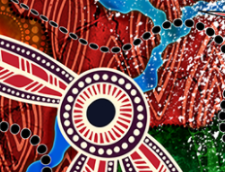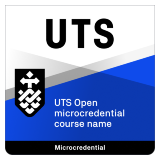Discounts are available for this course as follows:
- Early bird price of $1,276 (GST free)*. Use discount code DEVELOPINGEBJUN25 during checkout available until 11.59pm Monday 9 June 2025 (AEST).
- 10% discount for UTS staff, alumni and students
- 10% discount for group enrolments of 4 to 9 from the same organisation
- 15% discount for group enrolments of 10 or more from the same organisation
Discounts cannot be combined and only one discount can be applied per person per course session. Discounts can only be applied to the full price. Discounts cannot be applied to any offered special price.
How to obtain your discount code (group enrolments)
Please contact the team at support@open.uts.edu.au with details of group enrolments to obtain your discount code. Note that group enrolments will not be validated until the minimum number of criteria enrolments have been received.
How to enrol and obtain your UTS staff discount (UTS staff)
Please contact support@open.uts.edu.au to secure your enrolment and 10% staff discount code.
How to apply discount code
- Add this course to your cart.
- Click on "View Cart" (blue shopping trolley at top right of screen). You will need to sign in or sign up to UTS Open.
- Enter your eligible code beneath the "Have a discount code?" prompt and click on the blue "Apply" button.
- Verify your discount code has been successfully applied before clicking on the blue "Checkout" button.
UTS staff sponsorship
UTS is committed to supporting its staff to deliver quality teaching and learning experiences. The University provides sponsored places for UTS staff who wish to undertake this microcredential and potentially use its successful completion for credit on subsequent admission to the Graduate Certificate in Higher Education Teaching.
To apply for a sponsored place for this microcredential, contact FASSSFL@uts.edu.au specifying if you are a staff member who wishes to undertake the microcredential and potentially use its successful completion for credit on admission to the GradCertHEd. Please note that sponsored places are limited.
If you are admitted in the GradCertHEd, log in to My Student Admin and enrol in the equivalent subject.



















